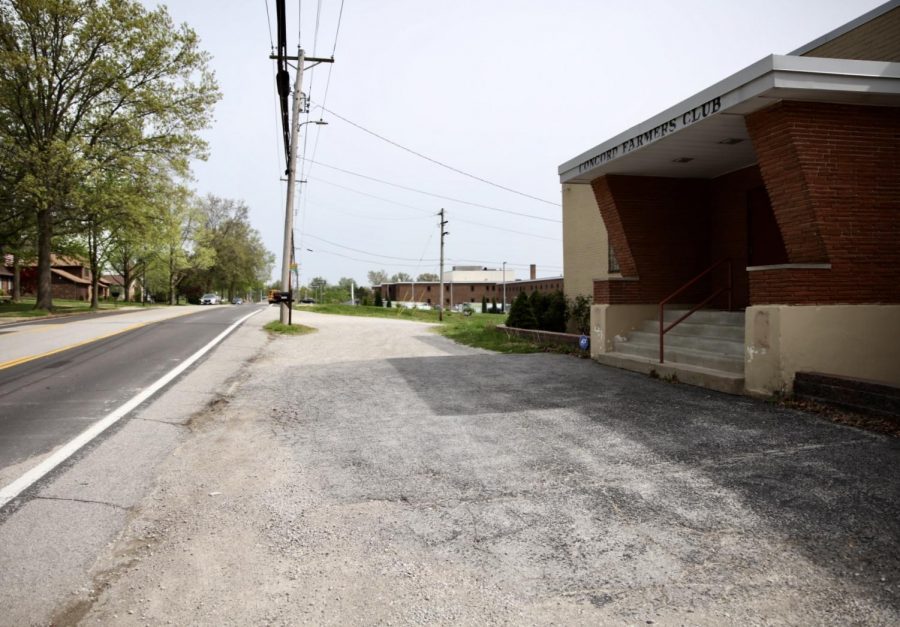Executive Editor
A quarter-cent sales tax designed to offset some of the costs of providing fire protection will be considered by Crestwood voters Tuesday, Aug. 5.
If approved, the proposal, called Proposition 1, would increase the city’s sales tax rate to 7.575 percent from the current rate of 7.325 percent.
The quarter-cent sales tax would generate from $900,000 to $1 million annually for the city’s Fire Department, which has an annual budget of about $2.5 million. The department’s budget includes a $300,000 payment to the Affton Fire Protection District for for the 290 acres east of the city between Grant and Rock Hill roads that was annexed six years ago.
City officials say approval of the quarter-cent sales tax is necessary if the city is going to continue to provide the quality services it does at existing levels.
As reported exclusively by the Call, preparation of an end-of-the-year budget adjustment ordinance designed to close out Crestwood’s fiscal 2003 books has led to a revised fiscal 2004 general fund budget that projects a shortfall of $112,010.
Passage of the quarter-cent sales tax not only would help the city build a fund balance in the general fund, but would allow the establishment of a capital replacement fund for costly vehicle and equipment purchases. If voters reject the proposed quarter-cent sales tax, the Board of Aldermen will have to take a hard look at either curtailing or eliminating some services the city currently provides, according to Mayor Jim Robertson and City Administrator Don Greer.
Employee wages and benefits comprise the largest part of the city’s general fund expenses — roughly 75 percent of the budget. Fire and police wages and benefits comprise nearly 73 percent of the city’s personnel costs.
“If you have a desire to see the city continue to provide the public safety services that we provide, which is the biggest part of our payroll, the only way that we’re going to be able to do that moving forward on a sustainable basis is with this additional source of revenue,” Robertson told the Call. “Otherwise, as Mr. Greer has said on more than one occasion, we’re going to have to look at the things that we do and stop doing something.
“It’s that simple. The alternatives, from my perspective, are less palatable. Living in the annexation area for the last eight years, I far prefer the level of police presence that we have in the city of Crestwood — very rapid response time, very competent, capable and courteous officers under local control, focused on local needs. The other option would be to become part of a fire district, which would result in a significant increase in property tax,” the mayor added.
Crestwood’s property tax rate is 25 cents per $100 of assessed valuation.
A Crestwood homeowner whose property is valued at $175,000 pays $83.13 in property taxes annually to the city. The Mehlville Fire Protection District’s current tax rate is 92 cents per $100, while the Affton Fire Protection District’s tax rate is $1.07 per $100.
If Crestwood residents utilized the services of the Mehlville Fire Protection District, a homeowner whose property is valued at $175,000 would pay an additional $305.90 in property taxes each year.
“To me, it truly is economics,” Greer said. “The city of Crestwood has for years been a very attractive and comfortable place to live. We enjoy a very low, almost non-existent property tax. If you own a $175,000 house in the city of Crestwood, you pay $83.13 on that property tax to the city of Crestwood. You get a lot of service for that $83.13 … I think people get their money’s worth for $83.13. In that 25 cents per $100 that we collect along with the other revenues, and, again, sales tax is half of our revenue for the general fund, we support a fire services division that does an excellent job. We have local control and that budget’s around $2.5 million.
“So to get us to the point where we collected $2.5 million for fire services, we would have to levy a property tax in the neighborhood of where the fire districts levy it and because of the nature of the makeup of Crestwood, we are essentially a residential community that is supported by very large and successful shopping areas,” he continued. “We draw people from many miles, from a very wide range, those people drive our streets, they use a variety of our services and it’s appropriate that those are the people that help support the high quality of services that the city provides. Sales tax is the best way to do that.”
Crestwood residents do not pay more than 10 percent of the total amount of sales tax revenue the city receives, while the majority of sales tax revenue is generated by nonresidents who utilize the city’s streets and services such as police protection.
“They surely take advantage of those services when they visit us,” Robertson said, adding that it’s only appropriate that visitors to the city shoulder some of the costs of those services.
Both Robertson and Greer said that an additional quarter-cent sales tax would not deter shoppers from coming to Crestwood because the city’s new tax rate of 7.575 would be identical to the sales tax rate in Brentwood, Maplewood, Olivette, Richmond Heights and Rock Hill.
In preparing the city’s fiscal 2004 budget, Greer has reduced the city’s total ex-pense position by roughly $660,000 compared to the previous fiscal year by consolidating operations and eliminating a dozen positions.
But those “efficiencies” that have been adopted are one-time measures, Greer said, and any further efforts to reduce operating expenditures will require existing services to be curtailed or eliminated.
“… We’re trying to build a system that is much more responsive to the public,” Greer said. “That is lean in terms of getting the most out of what we have. The whole (employee) pay plan was based on that concept of compensating people appropriately and asking them to do more. So it’s my considered opinion that if we have to reduce our expense position more, then we have to stop doing something and I don’t profess to know what priorities the board would want to establish, but we’re going to have to stop providing some service … That’s everything from we no longer have a dog catcher to we no longer have a fire department, we no longer have a police department, we have to stop doing something.
“It’s somewhere in between those, I’m sure, but we’re working now to identify the cost of providing the different types of services so that that information can go to the board and they can make some decisions based on priorities of service levels that they feel are most appropriate. Those are policy questions that the board may ultimately be put in the position of having to focus on,” the city administrator said.




















